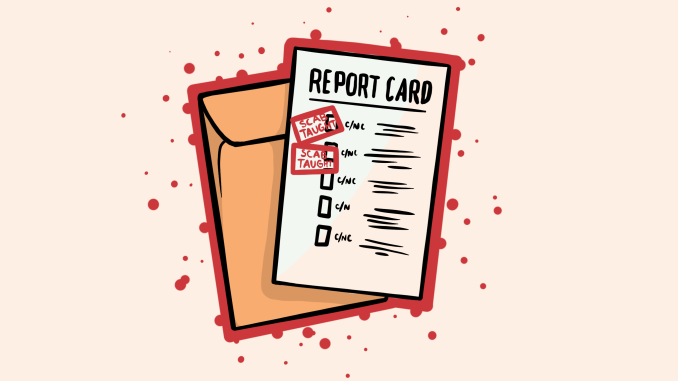
Brooke Feenie, a freshman graphic and interactive design major, was fulfilling her Analytical Reading and Writing general education requirement and felt connected with her instructor Molly Gorelick, a graduate instructor of record. However, when the Temple University Graduate Students’ Association went on strike on Jan. 31 and Gorelick joined the picket line, she was replaced by a ‘scab,’ the term used to describe strikebreakers.
The instructor who is now permanently assigned to Feenie’s class changed the writing-intensive course by making it asynchronous after it previously took place in-person twice per week and has yet to grade assignments since starting in the class in February, Feenie said.
“I feel like my education was compromised because my actual experienced teacher was taken away,” she said.
This spring semester has presented various unprecedented events, including TUGSA’s 42-day strike, that have disrupted students’ learning experiences. Temple should offer students in strike-affected classes a credit/no-credit grading option to mitigate concerns about impacted grades amid the university’s disorganized response.
During the strike, many instructors were replaced by scabs, while other classes went without teaching and research assistants. Temple claimed more than 80 percent of teaching and research assistants chose not to strike, but Matt Ford, a TUGSA staff organizer, said the percentage of striking members was double compared to the university’s estimate.
Some courses had multiple canceled classes during the strike and others, including Feenie’s, cycled through more than one scab, making it impossible to create a conducive learning environment.
Since the strike ended on March 13, some scabs remained in place of original instructors who were not allowed to return for the semester to minimize further disruption, The Philadelphia Inquirer reported. As the loss and replacement of teaching and research assistants caused a disturbance in some students’ education in various courses, their grades could be negatively impacted.
Feenie is unsure of her academic standing because her assignments have yet to be graded, and her classmates formed a group chat to support each other while struggling with a heavy workload and poor communication from her instructor, she said.
“We’ve basically been left to fend for ourselves and rely on each other because our scab is just really poor at communicating and it’s a huge waste of our money and time,” Feenie said.
Temple offered credit/no-credit grading options in the Spring 2020 semester to offset negative impacts on letter grades as students switched to online learning during the start of the COVID-19 pandemic. The university also allowed the option for one course of students’ choice in the Fall 2020 and Spring 2021 semesters but has since discontinued it.
The credit/no-credit grading system allowed students to feel some relief as they worried about grades during COVID-19 adjustments. To accommodate another chaotic semester, this grading option should be enacted for strike-affected classes because they’ve offered a devalued educational experience.
On April 2, Temple University Undergraduate Workers Organizing Committee, a group aiming to unionize undergraduate student workers, created a petition that anyone can sign urging Temple to revise grading in scabbed courses as credit/no credit. As of April 17, the petition has 210 signatures, said Ignacio Vasconsellos, a senior Latin American studies major and TUUWOC organizer.
“We felt that the situation in scab classes was not being properly addressed, and then it didn’t seem like there was any organization or institution on campus that was advocating for undergraduates that are stuck in that situation,” Vasconsellos said.
The university did not respond immediately to The Temple News’ request for comment.
During the strike, Temple did provide students time to drop courses without penalty and receive an excused withdrawal and the option of late-adding another class, The Philadelphia Inquirer reported.
“Admin could have avoided the strike, but they chose not to,” wrote Laurie Robins, TUGSA’s director of organizing, in an email to The Temple News. “The choices they made during the strike and continue to make today place a much lower value on a quality education than TUGSA and undergrads do.”
Although the strike was important for TUGSA members, once it ended, undergraduate students were left to deal with the university’s disorganized handling of the aftermath. Temple should recognize letter grades do not accurately reflect students’ learning experiences in strike-affected classes and offer them a credit/no-credit grading option.
“It’s like the least they can do because obviously, we’ve been through so much emotionally, through this semester alone with everything Temple’s done, so I just feel like, at least a small way to be like, ‘Sorry,’ would just be to make things pass-fail,” Feenie said.



Be the first to comment